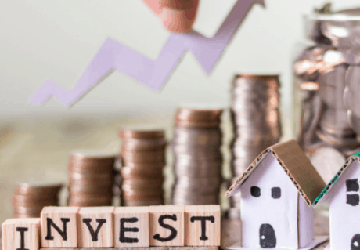
How to Price a Home for Its Market Value
sannan
If you're planning to sell or refinance your home or are just curious about its value, estimating your home's market value is a task you should pay attention to. Although it may seem complicated, it is possible with the proper strategies. This guide provides helpful information to help you transition from high school to college with enthusiasm. From comparing it to other properties to analyzing location factors to assessing the condition of your home - each step can give you a good idea of how much your property is worth. Following these tips will enable you to make informed decisions and gain the expertise to navigate the ever-changing dynamics of the real estate industry. Let's dive in!

Top Tips for Assessing the Market Value of Your Home
Getting an appraisal for your home may seem complicated, but don't panic! With some knowledge and practical tips, you can get a good idea of your modest home is worth in the current real estate market. Here are some simple tips to guide you through the process:
1. Research comparable properties
Start by researching homes recently sold in your neighbourhood to see how your home compares to the market. Choose a house with twice the square footage, bedrooms, and bathrooms and the same features. Sites like Zillow, Redfin, or Realtor allow users to browse listings, view property details, and even compare similar homes in the area. E-commerce can be the source of your latest sales reports. To get the most accurate comparison possible, look for homes like yours.
2. Consider location
The most important thing is location, location, location! This isn't just a quote; it's the most critical reason your home is worth so much. Consider the amenities and attractions in your area, such as schools, parks, shopping centres and public transportation. Desirable locations are often associated with higher housing prices. Conversely, if your home is located in an area with high crime or poor schools, this may hurt its value.
3. Assess the condition of your home.
Pay attention to the condition of your home. Do you need to make any significant corrections or improvements? Does the interior design reflect the past style or match current facilities? Assessing the condition of your home will help you understand its value in the market. Remember that well-maintained and newer homes sell for more than homes needing extensive repairs.
4. Consult a real estate professional.
In other cases, seeking advice from those with knowledge and experience may make sense. Hire a local real estate agent or appraiser familiar with the local market to gain insight. They can provide relevant information and help you become familiar with market dynamics and pricing implications. You may need to pay for their expertise. Still, their experience may be well worth the money, mainly when your property is adequately assessed.
5. Use online assessment tools with caution.
Today, online valuation tools can give you a rough estimate of your home's value and provide you with automated valuation models (AVMs) that use public data. Although they can be an excellent starting point for investigation, they are only sometimes reliable. The estimate may need to consider new facilities or unique amenities. Be aware of the risks and use online valuation tools to determine market value. There are other ways.

6. Consider market trends
Constantly monitoring market trends is a critical element of learning the principles of the real estate market. For example, if it's a buyer's market, with a shortage of homes for sale and many buyers, negotiating the price will take more work. On the one hand, a buyer's market with low demand and high supply may give you less room to negotiate a higher price. On the other hand, in a seller's market where demand is high but supply is low, you may have a better chance of getting a competitive price on your home.
7. Consider unique features
Differentiating property features is critical to increasing property value. If you have stunning landscaping, custom features, or eco-friendly upgrades, you'll likely command a higher price than others. Homebuyers typically pay a premium for homes with unique qualities that suit the owner's choices and lifestyle.
8. Assess local economic conditions.
Local economic conditions are a significant factor in housing demand and property prices. Factors such as job opportunities, major construction projects and investment in community facilities can increase the appeal of your community. Whether it's an increase or decrease in employment, unemployment, or consumer spending, patterns can help you predict the future value of your home.
Conclusion
Estimating a home's market value is complex and requires evaluating many parameters. The ten tips in this guide will boost your confidence and provide undisputed clarity to the assessment process. Each step is essential in determining your home's value, from finding comparable properties to analyzing the local economy to taking advantage of your home's unique features.




